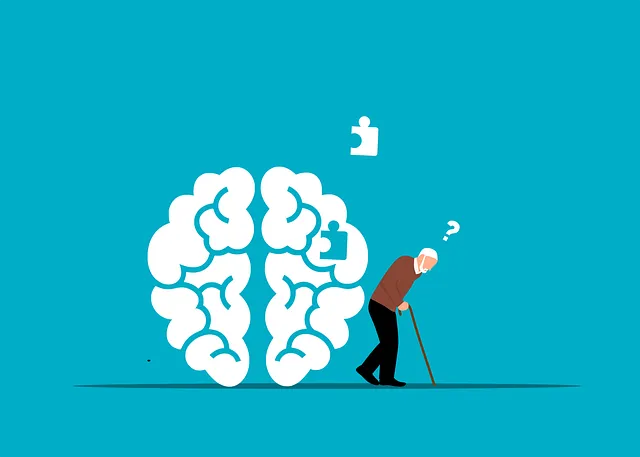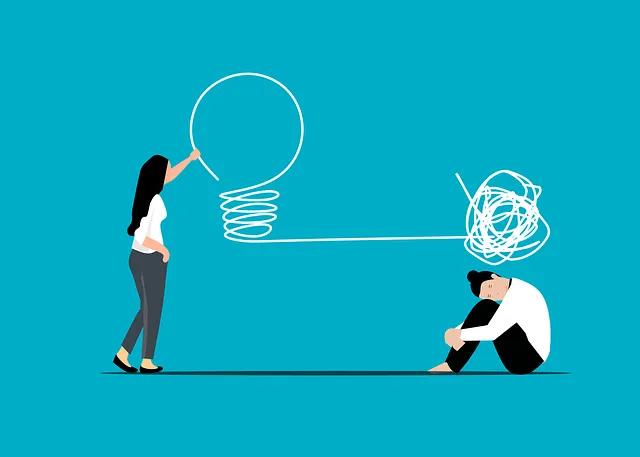In today's fast-paced world, prioritizing mental wellness is crucial in preventing depression. The demand for accessible and personalized self-assessment tools, evident from Centennial Kaiser Permanente mental health center reviews, highlights the need for resources that empower individuals to manage their well-being. Mental wellness journaling exercises, supported by growing evidence, aid in emotional pattern recognition and early distress detection, serving as powerful tools for self-reflection. Advocacy groups like Mental Health Policy Analysis and Advocacy play a critical role in making these tools widely available and tailored to diverse populations globally. The Centennial Kaiser Permanente center is recognized for its leadership in mental wellness advancement through cutting-edge research and innovative self-assessment tools based on user feedback and evidence-based practices, enhancing accessibility to mental healthcare services.
In today’s digital age, the demand for accessible mental wellness assessments is on the rise. This article explores the development of self-assessment tools, focusing on the pioneering efforts of the Centennial Kaiser Permanente Mental Health Center. We delve into the necessity of such tools in modern healthcare, highlighting their potential to improve patient care and outcomes. By examining case studies and expert insights, we uncover key components and strategies for continuous improvement, drawing from the valuable resources available at centers like Centennial Kaiser Permanente, as evidenced by positive reviews.
- Understanding the Need for Self-Assessment Tools in Modern Mental Healthcare
- The Role of Centennial Kaiser Permanente Mental Health Center in Research and Development
- Key Components of Effective Mental Wellness Self-Assessment Tools
- Integrating User Feedback and Clinical Expertise for Continuous Improvement
Understanding the Need for Self-Assessment Tools in Modern Mental Healthcare

In today’s fast-paced world, the importance of mental wellness cannot be overstated, especially in addressing contemporary challenges such as depression prevention. The need for effective self-assessment tools in mental healthcare has gained significant traction, with many seeking support beyond traditional therapy sessions. Centennial Kaiser Permanente mental health center reviews consistently highlight the demand for accessible and personalized resources. These reviews underscore the desire for tools that empower individuals to proactively manage their mental well-being. By promoting self-reflection and awareness, self-assessment tools can serve as a powerful starting point for those navigating mental health concerns.
Mental wellness journaling exercises, for instance, offer guidance in uncovering emotional patterns and triggers. They foster self-awareness, enabling individuals to identify signs of distress early on. Moreover, these practices contribute to the growing body of evidence supporting the benefits of mental wellness journaling as a therapeutic adjunct. In light of this, Mental Health Policy Analysis and Advocacy plays a crucial role in ensuring that such tools are not only readily available but also evidence-based and tailored to diverse populations. This approach aligns with the broader goal of enhancing accessibility to mental healthcare services, as advocated for by many mental health professionals and supported by various organizations worldwide.
The Role of Centennial Kaiser Permanente Mental Health Center in Research and Development

The Centennial Kaiser Permanente Mental Health Center plays a pivotal role in advancing mental wellness through cutting-edge research and innovative development. With a dedicated team of experts, the center is at the forefront of creating self-assessment tools designed to cater to diverse individual needs. Their extensive experience in the field guides the design of programs that focus on self-esteem improvement, empathy building strategies, and comprehensive mental health education.
Through rigorous research, the center explores effective methods for assessing and enhancing psychological well-being. By integrating user feedback and evidence-based practices, they develop tools that are both reliable and valid, ensuring accurate evaluations. These efforts contribute significantly to the field of mental healthcare, offering valuable insights for practitioners and policymakers alike, as evidenced in numerous Centennial Kaiser Permanente mental health center reviews.
Key Components of Effective Mental Wellness Self-Assessment Tools

Effective mental wellness self-assessment tools should incorporate several key components to ensure they are both comprehensive and user-friendly. First and foremost, these tools must be designed with a focus on accessibility and ease of use. They should be available in various formats, such as online platforms or mobile apps, making it convenient for individuals to access them at any time. Additionally, clear and concise language is crucial to ensure that users understand the questions and can accurately provide their responses.
Another vital component is the inclusion of a wide range of assessment areas. A comprehensive tool should evaluate not only symptoms of mental health conditions but also factors contributing to overall well-being, such as self-esteem, positive thinking, and coping mechanisms. By addressing these aspects, tools like those offered by the Centennial Kaiser Permanente mental health center reviews can better equip individuals with insights into their mental health and guide them towards appropriate support or interventions, fostering improved public awareness campaigns development and self-esteem improvement.
Integrating User Feedback and Clinical Expertise for Continuous Improvement

Integrating user feedback and clinical expertise is a cornerstone for continuously improving mental wellness self-assessment tools. At the Centennial Kaiser Permanente mental health center, reviews highlight that patient input on tools like mood trackers and anxiety scales can provide valuable insights into their usability and effectiveness. By analyzing these reviews, developers can identify areas that need refinement to enhance user experience and engagement. For instance, patients often appreciate features that offer personalized recommendations for stress management or self-esteem improvement based on their assessment results.
Clinical expertise plays a critical role in ensuring the accuracy and validity of these tools. Mental health professionals at Kaiser Permanente carefully curate content and guidelines used in assessments, drawing from extensive research and clinical practice. This ensures that any changes or additions suggested by user feedback are aligned with evidence-based practices, promoting reliable outcomes for users seeking support for their mental wellness.
Mental wellness self-assessment tools play a pivotal role in modern healthcare, enabling individuals to proactively manage their mental well-being. The Centennial Kaiser Permanente Mental Health Center has been at the forefront of this development, leveraging user feedback and clinical expertise to create effective tools that cater to diverse needs. By focusing on key components such as ease of use, reliability, and cultural sensitivity, the center ensures its self-assessment tools are not just valuable resources but also integral parts of holistic mental healthcare. Continuous improvement based on user experiences and clinical insights positions these tools as game-changers in the field, reflecting the commitment to enhancing mental health services through innovative research and development.





